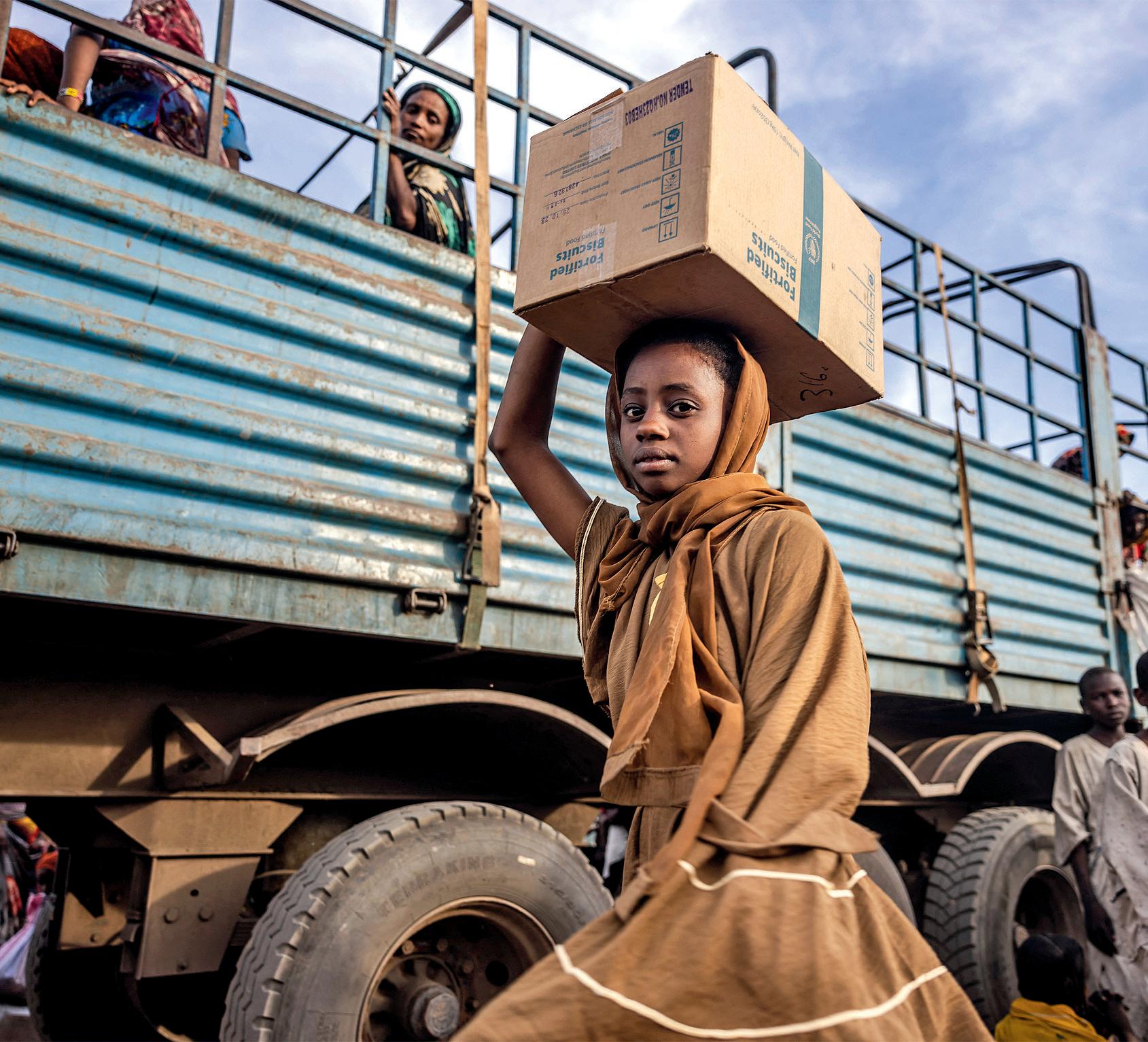
Hajer Sulaiman, a 32-year-old communications specialist, was living in the Sudanese capital, Khartoum, when a power struggle that had been simmering for months between the regular army and the paramilitary Rapid Support Forces (RSF) burst into the open on 15 April last year.
"My mother was telling me she wanted to head to the market that morning," Sulaiman said. "We could hear loud explosions, but we thought it was to do with protesters, not that the entire country had slipped into a civil war. It was just too overwhelming to process." She didn't expect the fighting to last a long time, believing the country's generals would be hauled around the table to thrash out a deal. But the sound of mortars, fighter jets and gunfire did not cease, and a few days later the family decided they had to leave.
Sulaiman, who now lives in Port Sudan, a small city on the Red Sea coast, is among millions of displaced Sudanese people whose lives have been upended by a brutal and seemingly intractable conflict that has killed at least 14,000 civilians, according to a conservative estimate by the nonprofit war monitor ACLED.
"I only took my laptop and phone because I thought we'd be back in a few weeks," Sulaiman said. "That's what hurts the most," she added, "not being able to say goodbye and now it has been over a year." According to the UN refugee agency, UNHCR, there are about 10 million internally displaced people in Sudan, making it the country with "the largest internally displaced population ever reported".
This story is from the July 19, 2024 edition of The Guardian Weekly.
Start your 7-day Magzter GOLD free trial to access thousands of curated premium stories, and 9,000+ magazines and newspapers.
Already a subscriber ? Sign In
This story is from the July 19, 2024 edition of The Guardian Weekly.
Start your 7-day Magzter GOLD free trial to access thousands of curated premium stories, and 9,000+ magazines and newspapers.
Already a subscriber? Sign In

The Saudi football World Cup is an act of violence and disdain
Well, that's that then. In the event there were only two notes of jeopardy around Fifa's extraordinary virtual congress last week to announce the winning mono-bids, the vote without a vote, for the right to host the 2030 and 2034 football World Cups.

AI has made the move into video and it's worryingly plausible
I recently had the opportunity to see a demo of Sora, OpenAI's video generation tool, which was released in the US last Monday, and it was so impressive it made me worried for the future.

With tyrant Assad ousted, Syrians deserve support and hope
Last week, time collapsed. Bashar al-Assad's fall recalled scenes across the region from the start of the Arab spring almost 14 years ago. Suddenly history felt vivid, its memories sharpened. In fact it no longer felt like history.

TV
The Guardian Weekly team reveals our small-screen picks of the year, from the underground vaults of post-apocalyptic Fallout to the mile-high escapism of Rivals

Albums
Murky love stories, nostalgic pop and an in-your-face masterpiece captured our critics' ears in 2024

Film
Visual language, sound, light and rhythm are to the fore in the best movies of the year

Hidden delights Our 24 travel finds of 2024
Guardian travel writers share their discoveries of the year, from Læsø to Lazio

'It's really a disaster' The fight to save lives as gang war consumes capital
Dr James Gana stepped out on to the balcony of his hospital overlooking a city under siege. \"There's a sensation of 'What's next?'. Desperation is definitely present,\" the Médecins Sans Frontières (MSF) medic said, as he stared down at one of scores of camps for displaced Haitians in their country's violence-plagued capital.

Trailblazers The inspiring people we met around the world this year
From an exuberant mountaineer to a woman defiantly facing the guns of war, here are some of the brave individuals who gave us hope in a tumultuous 2024

Votes of confidence
From India to Venezuela and Senegal to the US, more people voted this year than ever before, with over 80 elections across the world. With rising authoritarianism and citizen-led resistance revealing its vulnerabilities and resilience in the face of unprecedented challenges, has democracy reached its breaking or turning point?